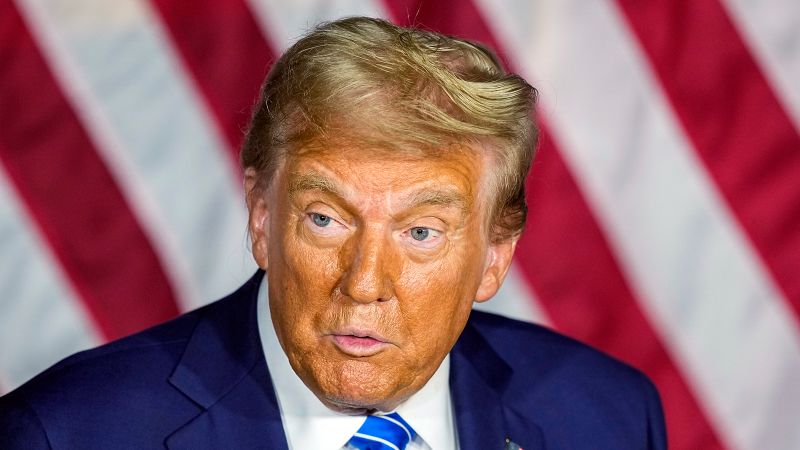Former President Donald Trump made it clear that he would veto a federal abortion ban if he were to be elected again. In a post on his Truth Social platform, Trump emphasized that the decision on abortion should be left to the states and their voters. He stated that like Ronald Reagan, he supports exceptions for rape, incest, and the life of the mother. This stance contrasts with his previous statements on the issue during the 2024 presidential race.
During a recent vice presidential debate between Trump’s running mate, Ohio Sen. JD Vance, and Minnesota Gov. Tim Walz, Trump reiterated his opposition to a federal abortion ban. He has consistently maintained that he would not sign such legislation. However, during a previous debate with Vice President Kamala Harris, Trump did not commit to vetoing a federal abortion ban, saying he “wouldn’t have to.” This ambiguity on the issue has sparked debate and speculation among voters and political analysts.
Abortion has become a significant point of contention in the 2024 presidential race, with Vice President Kamala Harris holding a clear advantage on the issue. Her support for abortion rights has resonated with female voters, both nationally and in swing states. Democrats have made the protection of abortion rights a central part of their messaging, particularly in light of increasing state-level restrictions following the appointment of Trump-nominated Supreme Court justices.
The overturning of the landmark Roe v. Wade decision in 2022 by a conservative majority on the Supreme Court has galvanized abortion rights supporters and mobilized them to action. Democrats have seen electoral success in races where abortion has been a central issue, including victories in statewide ballot measures even in traditionally conservative states. The debate over abortion rights continues to be a defining issue in American politics, shaping voter preferences and candidate strategies.
Trump’s recent portrayal of himself as a “protector” of women and his assertion that American women will not be preoccupied with abortion if he is elected signal a shift in his approach to addressing the issue. His emphasis on protecting women’s rights and promoting a message of empowerment may be an attempt to broaden his appeal among women voters. However, his conflicting statements on the federal abortion ban have raised questions about his position on the issue and its significance in the upcoming election.
As the 2024 presidential race progresses, the debate over abortion rights is expected to remain a focal point, drawing sharp distinctions between candidates and influencing voter perceptions. The contrasting positions of Trump and Harris on the issue highlight the deep divide within the electorate on matters of reproductive rights and healthcare. The outcome of the election may hinge on how voters perceive and prioritize these competing visions for the future of abortion policy in the United States.














